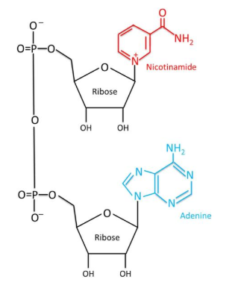Description
| Concentration | 100 mg per vial |
| Size | 100 mg |
| Stability | Store at -20°C |
| Physical Appearance | White Lyophilized Powder |
| Molecular Formula | C21H27N7O14P2 |
| LC-MS & HPLC | ≥99% Purity |
For easy credit/debit/gift card orders call our Customer Care line:
Scroll down for discount codes. You may use all 3 listed codes on the same order!!
Orders ship priority with tracking.
$99.99
THIS PRODUCT IS INTENDED AS A RESEARCH CHEMICAL ONLY. This designation allows the use of research chemicals strictly for in vitro testing and laboratory experimentation only. All product information available on this website is for educational purposes only. Bodily introduction of any kind into humans or animals is strictly forbidden by law. This product should only be handled by licensed, qualified professionals.
| Concentration | 100 mg per vial |
| Size | 100 mg |
| Stability | Store at -20°C |
| Physical Appearance | White Lyophilized Powder |
| Molecular Formula | C21H27N7O14P2 |
| LC-MS & HPLC | ≥99% Purity |
Nicotinamide Adenine Dinucleotide (NAD+) is a vital coenzyme present in all living cells, playing a crucial role in cellular metabolism and energy production. It functions as an electron carrier in redox reactions, facilitating the transfer of electrons during metabolic processes. NAD+ is also essential for the activity of enzymes involved in DNA repair, gene expression, and cell signaling.
NAD+ is the oxidized form of NADH and serves as a coenzyme in various biological reactions. It is synthesized in the body through pathways involving precursors like tryptophan, nicotinic acid, nicotinamide riboside (NR), and nicotinamide mononucleotide (NMN). NAD+ levels naturally decline with age, which has been associated with age-related diseases and metabolic decline.
Research indicates that maintaining or boosting NAD+ levels may support mitochondrial function, enhance DNA repair mechanisms, and promote healthy aging. NAD+ is involved in the activity of sirtuins, a family of proteins that regulate cellular health and longevity.
Scientific studies suggest that NAD+ supplementation may have several beneficial effects, including:
As a research chemical, NAD+ dosage should be determined based on the specific requirements of the study and the protocols established by qualified professionals. It is essential to handle NAD+ under appropriate laboratory conditions, considering factors such as concentration, administration method, and duration of exposure.
While NAD+ is a naturally occurring molecule in the body, research into its supplementation is ongoing. Potential side effects are not well-documented, and any adverse reactions should be monitored closely in a research setting. It is crucial to conduct thorough risk assessments and adhere to safety guidelines when handling NAD+ in laboratory experiments.

| Weight | 0.15625 kg |
|---|